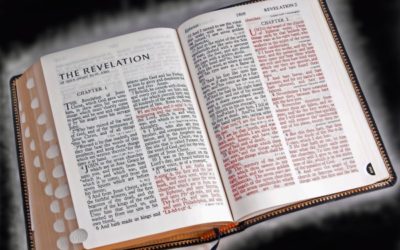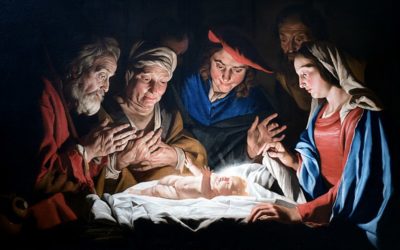In 1841 and 1842, as the Saints were gathering in and around Nauvoo, Illinois, the Lord gave the Prophet Joseph Smith revelations that related to the gathering and one of the main purposes for gathering, which is building temples and doing work in them.
Doctrine and Covenants 125
As the Saints were driven from Missouri and arrived in Illinois from other parts of the United States and abroad, they needed to be settled in Nauvoo and surrounding regions. Iowa, which is north of Missouri and west of Illinois across the Mississippi River, proved an attractive gathering place for some, though Joseph and others worried about the vulnerability to violence of Church members scattered in isolated places. In March 1841 in Nauvoo, Joseph received the revelation that is now section 125 of the Doctrine and Covenants.
In it, the Lord called for the Iowa Saints to “gather themselves together unto the places which I shall appoint unto them by my servant Joseph, and build up cities unto my name” (verse 2). He specifically called for the establishment of “a city unto my name upon the land opposite the city of Nauvoo” that was to be called “Zarahemla” (verse 3). The Lord directed all those gathering to the area to settle “in all the stakes which I have appointed.”
For more on the history of this section, click here.
Doctrine and Covenants 126
From the time Brigham Young joined the Church in 1832, he served faithfully, spending much of his time on missions, including the mission of the Quorum of the Twelve to the British Isles from 1839 to 1841. When he and other apostles returned to Nauvoo in July 1841, Joseph Smith received the revelation that is now section 126 of the Doctrine in Covenants, in which the Lord commended Brigham for his sacrifices and told him “it is no more required at your hand to leave your family as in times past” (verse 1).
At the time, Brigham was the president of the Quorum of the Twelve, a body whose primary responsibility to that point had been in areas outside of the organized stakes of Zion. But the following month at a special conference, Joseph announced, “that the time had come when the twelve should be called upon to stand in their place next to the first presidency, and attend to the settling of emegrants and the business of the church at the stakes, and assist to bear off the kingdom victorious to the nations; and as they had been faithful and had borne the burden in the heat of the day that it was right that they should have an opportunity of provididing something for themselves and families, and at the same time relieve him so that he might attend to the business of translating.”
Doctrine and Covenants 127
Sadly, Joseph Smith’s escape from his captors in Missouri was not the end of his persecution from enemies in that part of the country. They tried repeatedly to have Joseph arrested in Illinois and transported to Missouri, a process known as extradition, but Joseph found good legal help and was able to avoid what would likely have meant his death.
In order to avoid such a fate, he sometimes went into hiding, which was where he was on September 1, 1842, when he wrote an epistle expressing his feelings and instructing the Saints on baptism for the dead. By 1842, Joseph knew his mission would end soon, and he worked tirelessly to finish laying the foundation of the Restoration, especially as it related to temple ordinances.
“Forasmuch as the Lord has revealed unto me that my enemies, both in Missouri and this State, were again in the pursuit of me; and inasmuch as they pursue me without a cause, and have not the least shadow or coloring of justice or right on their side in the getting up of their prosecutions against me; and inasmuch as their pretensions are all founded in falsehood of the blackest dye, I have thought it expedient and wisdom in me to leave the place for a short season, for my own safety and the safety of this people,” Joseph explained (verse 1).
Joseph had spent his entire adult life and much of his youth battling persecution and misunderstanding, and he reflected on his feelings about that in the letter. “And as for the perils which I am called to pass through,” he wrote, “they seem but a small thing to me, as the envy and wrath of man have been my common lot all the days of my life; and for what cause it seems mysterious, unless I was ordained from before the foundation of the world for some good end, or bad, as you may choose to call it. Judge ye for yourselves. God knoweth all these things, whether it be good or bad. But nevertheless, deep water is what I am wont to swim in. It all has become a second nature to me; and I feel, like Paul, to glory in tribulation” (verse 2).
Joseph then recorded revelation from the Lord on the topic of the temple.
Despite Joseph’s absence, the Lord directed the Saints, “Let the work of my temple, and all the works which I have appointed unto you, be continued on and not cease; and let your diligence, and your perseverance, and patience, and your works be redoubled, and you shall in nowise lose your reward” (verse 4).
The Lord directed that when baptisms for the dead were performed, there should “be a recorder, and let him be eye-witness of your baptisms; let him hear with his ears, that he may testify of a truth” (verse 6). The recordings of these ordinances on earth would then “be recorded in heaven” (verse 7).
The Lord also announced, “I am about to restore many things to the earth, pertaining to the priesthood” (verse 8).
As part of this sacred ordinance work, the Lord commanded, “Let all the records be had in order, that they may be put in the archives of my holy temple, to be held in remembrance from generation to generation” (verse 9), a commandment that has been fulfilled with the work of recording being done today by the Family History, Temple, and Church History Departments of the Church.
Joseph promised to write more when he could (verse 10).
Doctrine and Covenants 128
It wasn’t long before Joseph fulfilled the promise to write more. Just a few days after his first letter, he wrote a second, explaining that “the subject of the baptism for the dead . . . seems to occupy my mind, and press itself upon my feelings the strongest, since I have been pursued by my enemies” (verse 1). This is a remarkable statement given all that Joseph must have had on his mind at the time. He had a growing family, a store to operate to provide for his family, and a new house under construction. He had just introduced the endowment to a select group of leaders who would become the workers in the Nauvoo Temple, then under construction.
With the temple on his mind, he followed up the previous letter by explaining the need for multiple recorders and a general recorder who would oversee the recording function (verses 2‒4).
There is a general recorder today who oversees Church record-keeping.
For those who thought Joseph was maybe being a bit too particular about this subject, Joseph wrote, “You may think this order of things to be very particular; but let me tell you that it is only to answer the will of God” (verse 5). He then instructed his readers from the scriptures about this topic, explaining that “whatsoever you record on earth shall be recorded in heaven, and whatsoever you do not record on earth shall not be recorded in heaven” (verse 8), In other words, an ordinance that is not recorded does not count, a principle reflected in the Church’s General Handbook today.
He goes on to explain other aspects of work for the dead. For example, he explains that being immersed in the water on behalf of someone who has died and coming “forth out of the water is in the likeness of the resurrection of the dead in coming forth out of their graves” (verse 12). For that reason, a font used in baptisms for the dead should “be in a place underneath where the living are wont to assemble” (verse 13), or in other words, below ground, such as in the temple basement.
Importantly, Joseph wrote, “And now, my dearly beloved brethren and sisters, let me assure you that these are principles in relation to the dead and the living that cannot be lightly passed over, as pertaining to our salvation. For their salvation is necessary and essential to our salvation, as Paul says concerning the fathers—that they without us cannot be made perfect—neither can we without our dead be made perfect” (verse 15).
Despite being hounded, persecuted, and in hiding, Joseph went on in the letter to exult over the great work of the temple then being unfolded by revelation. Near the end of the letter he admonished, “Let us, therefore, as a church and a people, and as Latter-day Saints, offer unto the Lord an offering in righteousness; and let us present in his holy temple, when it is finished, a book containing the records of our dead, which shall be worthy of all acceptation” (verse 24).
Joseph did not live to see the day, but it is fulfilled in temples around the world, with more temples being announced and built each year and ordinance work for the living and the dead going on in spite of opposition.
Credit for image at top of page: Circa 1946 daguerreotype of Nauvoo Temple on hill, public domain, copied from https://upload.wikimedia.org/wikipedia/commons/9/9f/Nauvoo_Temple_%28flipped_Daguerreotype%29.jpg.



